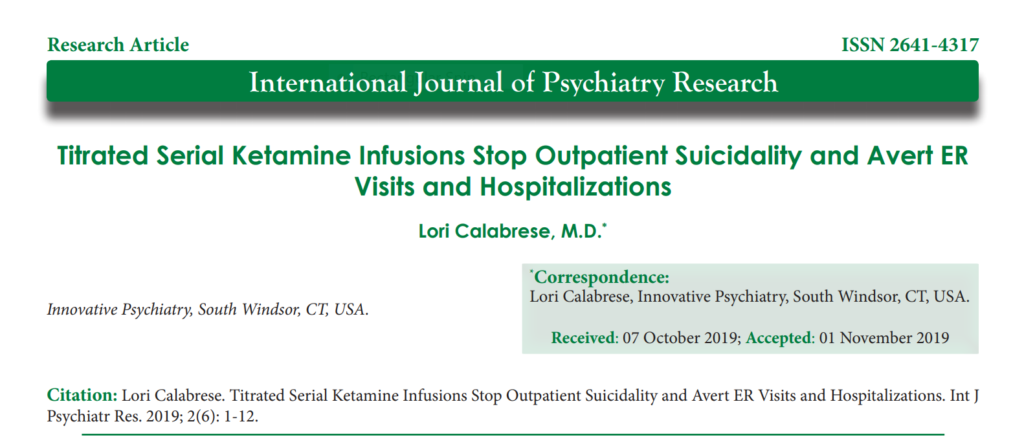Is depression common ..?

Is it something suffered only by the rare individual…? The World Health Organization says it’s the leading cause of disability. Have you heard that? Not those rare people no one ever sees… but people all around you struggle to function, and paste on their “upbeat faces” … while feeling more alone than words can say. Likely as not, chronic stress pathology is at work wearing them down.
And it’s not just depression. It’s bipolar depression, and generalized anxiety disorder, and PTSD, and social anxiety… These conditions are all different, and the way their symptoms present in each person can be really different.
But all these disorders also have something in common. Something called chronic stress pathology or CSP. They may have been triggered by a traumatic event, or a terrible loss, and just a constant nagging of unrelenting heaps of difficulty that wear away at your ability to cope.
There’s something else they have in common. They tend to clump together …why? Because of what happens in your brain. We call it comorbidity.

We’ve often talked about how long and severe chronic stress prunes the dendrites and dendritic spines of the neurons in the prefrontal cortex and the hippocampus, breaking down synapses (or “synaptic connections”).
Well …it turns out that there is a cascade of changes during these chronic stress situations that also increases brain derived neurotrophic factor or BDNF to increase synaptic connections in the amygdala and nucleus accumbens in another area of your brain. The nucleus accumbens is part of the basal ganglia located near the hypothalamus.
Oh dear…this is getting a bit tongue-twisting.
But get this: in one part of the brain, the synaptic connections are SHRINKING from chronic stress while in another area, they’re EXPLODING where they shouldn’t be.
You heard right.
This creates a vicious cycle that continuously drags you back into this disordered condition over and over…making it terribly difficult for you to recover. In the amygdala, the hippocampus, the prefontal cortex, and the nucleus accumbens, nerve connections (called neuronal connections) are being changed and damaged because of long term chronic stress.
That condition may be major depression. It may be PTSD. It may be an anxiety disorder. But it goes on and on. And on.
These Disorders are NOT a Chemical Imbalance
You can see why the old idea — and people still talk about it like it’s a thing — that this is “a chemical imbalance”…is archaic, mistaken, and doesn’t even describe what’s going on at all.
We’re talking about dramatic changes in structures in your brain. Damage. Not just chemical changes.
Misinformation Feeds Stigma… But Knowledge is Power
This idea of chemical imbalances is leftover from 30 years ago, before neuroscience understood these structural changes and thought depression was the result of changes in serotonin alone….a neurotransmitter that turned out to be a only a component in the overall process.
Ketamine Research has Taught Us So Much More… About Chronic Stress Pathology And Its Effects on Your Brain
As we’ve talked about before, evidence has been accumulating for years showing that ketamine treatment can reverse the pruning of synaptic connections in the prefrontal cortex and hippocampus – caused by stress – by robustly increasing them — turning on your mRNA to switch on your DNA… and that releases BDNF.
And you know what BDNF does. It TURBO boosts those synaptic connections in those areas, which in effect turns the light on in the darkness. You feel better, function better. Your creativity flourishes. And you have the patience and capacity to build and repair your relationships. Hope surges and futility morphs into purpose.
But you know what? We don’t talk very often about ketamine’s effect on the synapses in the amygdala and nucleus accumbens. There, it turns off the production of BDNF and reduces those connections there which helps to reduce your symptoms.

It also tamps down the cell bursting in the lateral habenula to help you relax and enjoy yourself. So you can revel in the fragrance of honeysuckle, and the aroma of burgers on the grill.
The fact is that chronic stress pathology is at the root of much of your suffering. Your body is intricately balanced, your emotions are influenced by a complicated series of changes in your gut through your microbiome, in your brain cells, as well as your muscles and organs.
If you have a severely broken leg, the pain, repair, and convalescence of that injury can have a significant effect on your emotions. And symptoms of chronic stress, depression, and anxiety can make your muscles and joints ache.
Which is why I’m on a mission to eradicate the term “mental illness.” Because your whole body is affected when something is malfunctioning in just one part of it.
For example, diabetes can predispose you to depression. And so can open heart surgery. Your brain is part of your body…not a separate entity. And when one part of your body is affected, other parts are affected, too.
So, the more we learn about our brains and bodies, the more we understand about the intricacies of how we function on every level.
Now… what if you do have chronic stress pathology working against you? What if you’ve been traumatized… or what if you’ve weathered a long, repetitive, unrelenting assault of stressors?
Cheryl’s Story
Cheryl did. Cheryl’s husband began complaining about the family’s budget..insisting they needed to make changes or there would be nothing to retire on. He finally became harsh about the need to find a less expensive house. Cheryl worked 60 hours a week…and the kids had needs, and schedules, and practices, and uniforms…. When could she look at houses..? Or worse…when could she possibly pack?
But since her husband Ben was so adamant about it, she tried to cooperate. She looked at houses during her lunch break, and after she dropped her sons off at practice.
She stayed up late searching the internet for houses she could look at, but she and her husband couldn’t seem to find the time to look together. Finally, she found one that could work, and Ben took a look on his lunch hour and agreed it was just fine.

After frantically packing every free minute for weeks…they closed on the house and moved. Cheryl was exhausted and the rooms packed with unopened boxes in the new house just made her want to cry.
Then as soon as she moved, her mother asked her to go to the doctor with her. At the appointment, the doctor told her mother she had breast cancer. She explained the details, the treatment, and prognosis to both of them.
When they got back in the car they cried together.
Cheryl knew her mother would need her extensively through this process. And she was committed to be at her side as much as she could.
She rearranged her schedule, her children’s schedules, and approached her boss about shortening her work hours for the next several months.
Unpacking the new house was a mountain to climb…and Cheryl kept wondering why Ben wasn’t on hand to help…
And why was his job so demanding through all this, anyway??
Then she found out… Ben told her he wanted a divorce.
“A divorce?? NOW?? IS THIS WHY YOU WANTED TO MOVE…??”
Cheryl felt herself coming apart..
There was nothing to do but keep moving. Her children needed her to be reliable through this. To be a safe haven…a comfort.
Her mother needed her support as she looked a life threatening condition in the face.
Cheryl couldn’t think about how she felt…she had to keep going.
But 8 months later, after the divorce was final and her mother’s treatments were complete… Cheryl couldn’t get out of bed.
Over the weekend…Cheryl just felt like she was in a long dark tunnel. She called in to work on Monday. Her sister came over and got the kids on a bus…
Sometimes it’s just too much.

And what about you?
Have intense stressors piled up in your life and worn down your hope? Have you taken prescriptions that just didn’t help?
Do you feel like the crises just keep pelting you without mercy?
Sometimes we’re subjected to repeated stressful assaults in life that we can’t control. But there is something you can do about your ability to cope with it. Reach out for IV ketamine treatment.
At Innovative Psychiatry, we offer IV ketamine treatment expertly titrated and see resilience return to our patients every week. We also have published research that you can read about our results. We’re serious about what we do.

Things have changed since the days of “chemical imbalance” thinking. (That’s so 20th century!) Neuroscience is making 21st century discoveries that offer better treatments than we’ve ever known before.
And you get to take advantage of those advances.
If you can relate to Cheryl and prescriptions haven’t helped, call us. If you have symptoms of PTSD, call us.

IV ketamine treatment can reverse the damage caused by chronic stress pathology. Chronic stress doesn’t always result in this damage, but it does all too often.
And when you’re the one suffering, you need a solution. You need to cope. While ketamine doesn’t work like this for everyone, it does provide rapid, robust relief for most. And chances are, it will transform your life to allow joy, hope, and resilience.
Give yourself the opportunity to live well again. To enjoy a fulfilling and rewarding life.

To the restoration of your best self,

A very enlightening article. I am 75 years old and have suffered from mania and depression since approximately 1970. I have suffered through approximately 5 to 7 major traumas.
I was finally diagnosed as having Bipolar in 1988 and put on Lithium, which I still take. Approximately 2013 I was put on Beaupropion & Quetapine.
As I live in Canada is there and options that I can try the Kitamine threapy?
I still have minor mania & depression sessions, but can control them
Thanks
I know that there is a lot of interest in Canada in ketamine treatment for depression and bipolar depression, and Roger McIntyre, MD in Toronto has just published an important article about it. (He is brilliant!) Please reach out to him at the University of Toronto. He or his staff may be able to point you in the right direction for your area. Best wishes to you!
This article is incredibly enlightening. Thank you for such thorough descriptions and information.
Can you point me towards any research and/or articles that address how IV Ketamine can positively impact severe systemic chronic pain & muscle spasms as a result of extensive childhood sexual abuse and Complex PTSD?
Thank you so much!
We know that ketamine infusions can positive impact and treat PTSD symptoms but I am not aware of a study to date that specifically evaluates chronic pain and muscle spasms secondary to extensive childhood sexual abuse and complex PTSD. There is so much more work to be done and so much more research that we need in PTSD and particularly in complex PTSD. Best wishes to you!